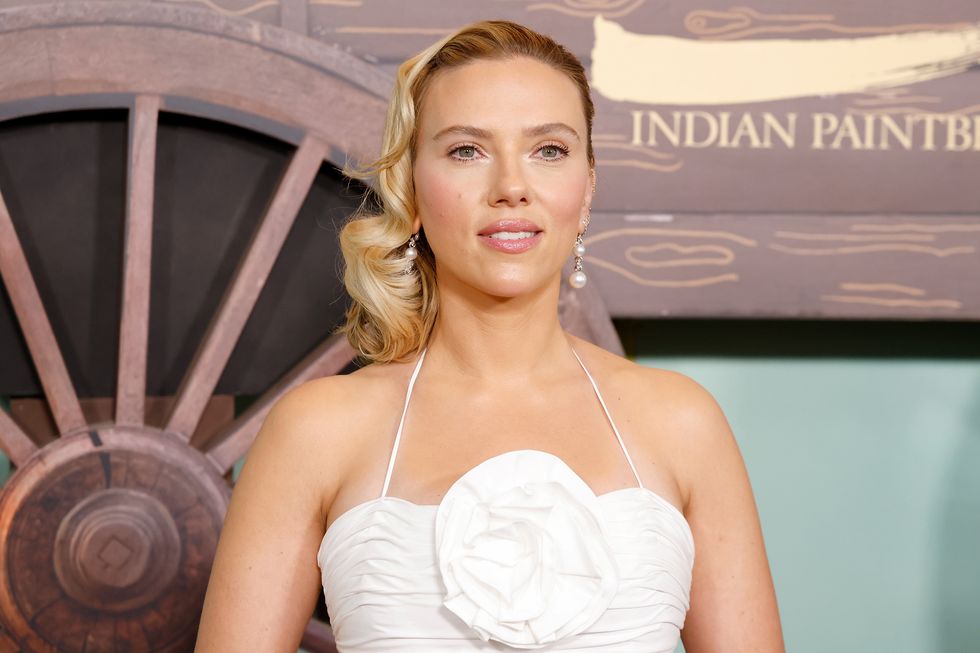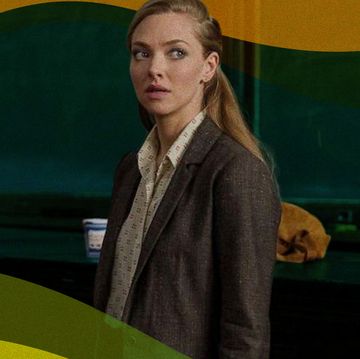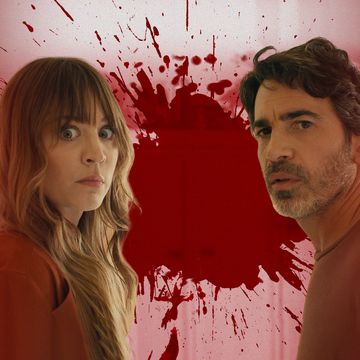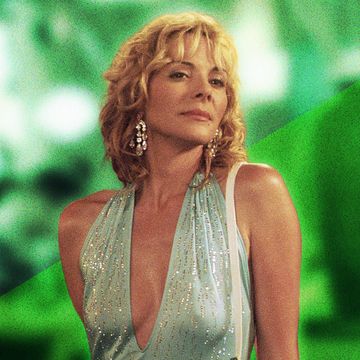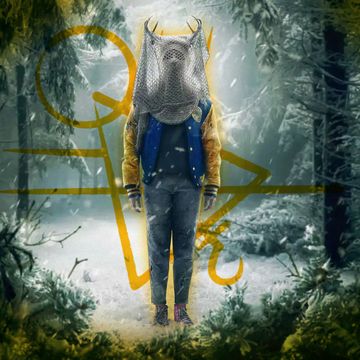Imagine millions of people knowing your name and hundreds more approaching you for photographs, autographs, conversations, and favors. All the while, very few people know the innermost version of you — that private voice behind the glitz and glam. It’s a common experience for a select group of talented and famous individuals, including actress Scarlett Johansson and the character she plays in director Wes Anderson’s new film, Asteroid City.
In the movie, Johansson stars as 1950s Hollywood actress Midge Campbell in a televised play called Asteroid City. The play follows a group of people who have an otherworldly experience at a 1955 Junior Stargazer convention in a tiny desert town. In true Anderson fashion, the film is a meta-narrative that is divided up into three acts and two different worlds (the convention and the play), enhanced by Anderson’s signature vibrant set design and an ensemble cast (Johansson, Jason Schwartzman, Tom Hanks, Jeffrey Wright, Tilda Swinton, Bryan Cranston, Edward Norton, Adrien Brody, Steve Carell, Willem Dafoe, Margot Robbie, and Jeff Goldblum all star in the film).
Throughout the movie, we see Midge as she navigates her Hollywood career and the acute loneliness that can often accompany that profession. In the play, she’s a famous actress and single mother who questions her parenting skills as she devotes herself to her craft of acting. When she’s tasked with accompanying her daughter to the Junior Stargazer convention, Midge encounters Jason Schwartzman’s Augie Steenbeck, a war photographer who provides some much-needed comfort and connection for the isolated star.
“I think when you find the character that my character is playing, Midge Campbell, I think she’s in the middle of her career. She’s highly regarded and respected,” Johansson tells Shondaland during a recent interview. “She’s very admired, and she’s fine to be observed, and she doesn’t mind being in that spotlight. She’s sort of comfortable there. But she finds this unexpected connection with Augie because they’re in these extenuating circumstances where they’re now realizing that everything will be forever changed because they’re no longer alone in a greater sense. It’s a very profound moment.”
She continues, “I think that moment actually allows her to let him in or be open to the possibility that there could be something between them that’s more than just this moment in time. It’s hard, I think, when you’re a person that’s celebrated and observed; it’s hard to have a meaningful connection with people because you never know what somebody may be using you for. But in this moment, it feels to her like the real thing, maybe. It’s different. We don’t know what the end of it is. We may never see each other again, but in that moment, it feels real.”
While Johansson’s Midge is combating loneliness, Schwartzman’s Augie is battling against grief. In the play, Augie has just lost his wife and the mother of his children, and he experiences grief in an unorthodox way, as is Anderson’s style. Instead of shedding tears and unpacking his grief in therapy, as many of us have done, Augie is shown taking photos, avoiding sharing the news with his children, and cozying up to Johansson’s Midge. Schwartzman tells Shondaland that his own experience with grief informed his performance in the film.
“Absolutely, [I channeled my encounters with grief into the role]. We all have different versions of grief,” Schwartzman says. “I always think that grief — there’s really no wrong way to do grief. You don’t like to feel bad. If you don’t feel bad about something that you should feel bad about — let’s say after a loss or something — I think it’s worse to feel bad about not feeling bad than to just say, ‘I don’t feel anything right now.’ I think that’s sort of what grief is. That’s what Adrien Brody’s character says, ‘Just keep doing it.’ Don’t judge how you’re feeling — it’s right. Whether you’re laughing or not, or crying or not, it’s what you’re supposed to be feeling [and] don’t judge it.”
The craving for connection is evident throughout many of Asteroid City’s cast of eccentric characters, including Maya Hawke’s June Douglas and Rupert Friend’s Montana. In the play, June is an elementary school teacher who takes her class of students to the convention to learn more about the solar system. Montana, meanwhile, is a rough-and-tumble cowboy who spends his time singing in an informal country and western music group. The twosome share an awkward chemistry that culminates in a fun dance scene. Life imitated art last month when both Hawke and Friend broke out those dance moves on the red carpet during the premiere of Asteroid City at Cannes Film Festival in France.
“Yeah, shooting that scene was probably my favorite day on set,” Hawke explains about the dance sequence. “It was very improvisatory. Rupert and I had no rehearsal. There was no choreographer. Rupert had spent most of his time practicing the lap steel [guitar], which then was interrupted because he had to get up and dance halfway through. Then we did that a couple times, and Wes adjusted us slightly from our improvisation to fit the frame better, and then we were done. It was spirited, and free, and awesome.”
These interviews have been edited for length and clarity.
Asteroid City hits theaters nationwide on Friday, June 23.
Mariel Turner is the Senior Culture Editor at Shondaland. Follow her on Twitter at @mariel_turner.
Get Shondaland directly in your inbox: SUBSCRIBE TODAY

